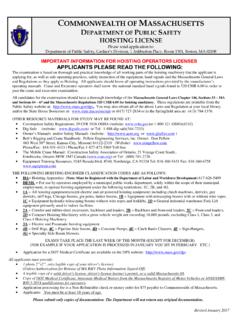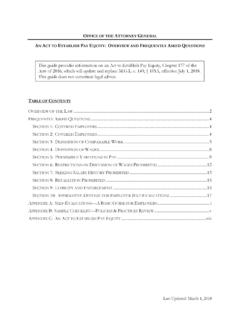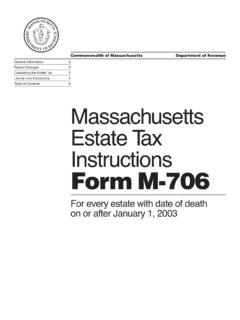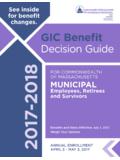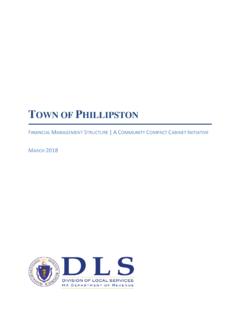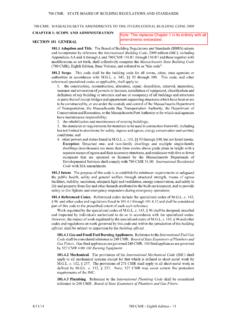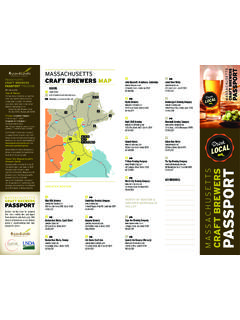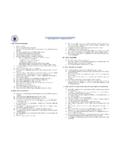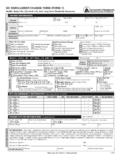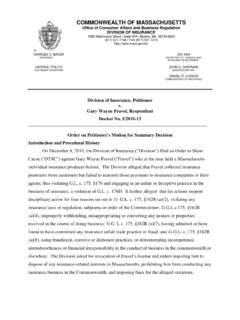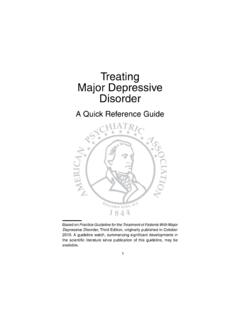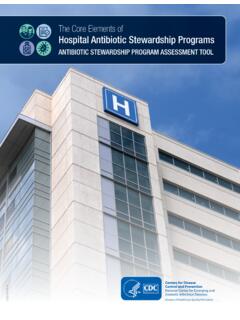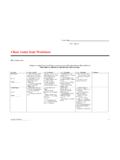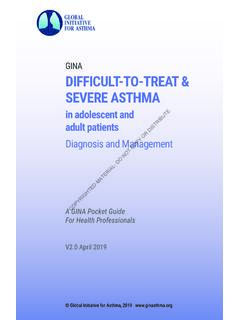Transcription of PRESCRIBING PRACTICES POLICY AND GUIDELINES
1 COMMONWEALTH OF MASSACHUSETTS. BOARD OF REGISTRATION IN MEDICINE. PRESCRIBING PRACTICES . POLICY AND GUIDELINES . POLICY 15-05. Adopted October 8, 2015. COMMONWEALTH OF MASSACHUSETTS. BOARD OF REGISTRATION IN MEDICINE. PRESCRIBING PRACTICES POLICY and GUIDELINES ( PRESCRIBING POLICY ) was first adopted on August 1, 1989 as Board POLICY 89-01. The POLICY was amended on November 17, 2010. The November 17, 2010 amendment superseded all previous versions of this PRESCRIBING POLICY . PRESCRIBING PRACTICES POLICY and GUIDELINES is amended on October 8, 2015. This amendment supersedes all previous versions. PRESCRIBING PRACTICES POLICY and GUIDELINES is hereby renumbered as Board POLICY 15-05. The Board is not responsible for any third party content which can be accessed through the PRESCRIBING PRACTICES POLICY and GUIDELINES . The PRESCRIBING POLICY provides links to other sites without endorsement.
2 While the Board strives to keep this PRESCRIBING POLICY current, that is not always possible. In the event of any discrepancies between third party content and the Board's statutes, regulations or policies, the Board statutes, regulations or policies control. Commonwealth of Massachusetts Board of Registration in Medicine 200 Harvard Mill Square, Suite 330. Wakefield, MA 01880. TEL: (781) 876-8200. WEB: COMMONWEALTH OF MASSACHUSETTS. BOARD OF REGISTRATION IN MEDICINE. Charles D. Baker Governor Karyn Polito Lieutenant Governor Marylou Sudders Secretary, Executive Office of Health and Human Services Monica Bharel, , MPH. Commissioner, Department of Public Health Candace Lapidus Sloane, Board Chair Members of the Board Kathleen Sullivan Meyer, Esq., Vice-Chair, Public Member Michael E. Henry, , Secretary, Physician Member Paul A. DeRensis, Esq., Public Member Joseph P.
3 Carrozza, Jr., , Physician Member George Abraham, , Physician Member R. Michael Scott, , Physician Member Commonwealth of Massachusetts Board of Registration in Medicine 200 Harvard Mill Square, Suite 330. Wakefield, MA 01880. TEL: (781) 876-8200. FAX: (781)876-8383 TTY: (781) 876-8395. Consumer Hotline: (800) 377-0550. WEB: PRESCRIBING POLICY PRACTICES AND GUIDELINES . TABLE OF CONTENTS. Introduction .. i 2015 Update .. i Executive PART I Boundaries of Acceptable Medical Practice 1. Basic Requirements of Acceptable Prescriptive Practice ..1. 2. PRESCRIBING to Immediate Family Members ..5. 3. PRESCRIBING to Self ..6. 4. Internet PRESCRIBING ..6. 5. PRESCRIBING Opioids for the Treatment of Chronic Pain ..8. 6. Treating Drug Dependent Persons ..10. 7. medication -Assisted Treatment of Opioid Addiction in the Medical Office 12. 8. Enhancing Patient adherence ..13. 9.
4 The Importance of Continuing Professional Development ..16. PART II Technical Requirements 1. Registration 2. Drug 3. Prescriptions ..31. 4. Dispensing ..34. 5. The Prescription Monitoring Program ..38. 6. The Medical Marijuana Law 42. 7. Supervision of Healthcare Practitioners with Prescriptive Authority .48. 8. Gifts or Inducements From the Pharmaceutical Industry ..56. APPENDICES. Contact Information .. A. POLICY 03-06 Internet PRESCRIBING ..B. 2007-01 Joint POLICY Regarding Issuance of Multiple Prescriptions for Schedule II. Controlled Substances and Joint POLICY on PRESCRIBING and Dispensing Dextro- and Levo- Ampehetamines ..C. DPH Labeling GUIDELINES for Sample Prescription Drugs .. D. 2015-01 Joint POLICY Pharmacist and Pharmacy Intern Administration of Vaccines E. Joint Alert on National Transportation Safety Board Study ..F. MMS Opioid Therapy and Physician Communication GUIDELINES G.
5 POLICY No. 2015-03, Guidance for Filing Expedited Partner Therapy Prescriptions .. H. INTRODUCTION. The Massachusetts Board of Registration in Medicine has prepared these PRESCRIBING PRACTICES POLICY and GUIDELINES to provide physicians with greater understanding of their responsibilities and the standards the Board applies in reviewing their PRESCRIBING PRACTICES . The Board believes that, by providing a comprehensive overview of the physician's responsibilities related to PRESCRIBING , this publication will help further its overall mission to foster the delivery of competent, high quality health care in Massachusetts. The Board also believes that this information will help physicians maintain a high level of quality in their PRESCRIBING PRACTICES . Scientific and legal developments in the area of PRESCRIBING occur frequently. It is the obligation of the physician to stay abreast of this rapidly-changing subject matter.
6 The Board encourages all physicians who prescribe to educate themselves on the drugs they prescribe, and to continuously reevaluate PRESCRIBING PRACTICES in the light of clinical outcomes. This publication is available on the Board's website at Physicians should check the website regularly. In addition to this publication, the Board has issued other policies and GUIDELINES that are available on the Board's website. Policies related to PRESCRIBING are attached to this publication as Appendices. 2015 UPDATE. In 2015, Governor Charles Baker announced that Massachusetts was in the midst of an opioid epidemic. According to the Massachusetts Department of Public Health, there were over 1,000 estimated unintentional opioid-related deaths in 2014. There were 312 opioid-related deaths in the first three months of 2015. In February 2015, Governor Baker convened an Opioid Working Group, an 18-member statewide, expert panel.
7 I On June 22, 2015, Governor Charles Baker announced the findings of his Opioid Working Group. The task force issued 65 recommendations to address the opioid epidemic in Massachusetts.) These recommendations include plans to establish 100 new addiction-treatment beds within one year. The task force called for access to evidence-based medication -assisted therapy and for greater availability of medication that can treat opioid overdose. See One key element of the Governor's plan is public education for parents, about the hazards of prescription painkillers in the home, for students, on the dangers of opioids, and for health care professionals. Education is seen as the way to change the stigma against substance use disorder and to redefine addiction as a public health issue. Primary care practitioners are called upon to screen for and treat addiction as they would any other medical condition, in order to expedite interventions and treatment referrals.
8 Also in 2015, the Massachusetts Medical Society issued opioid PRESCRIBING GUIDELINES for physicians. These GUIDELINES are included in this POLICY in Part 1, Section 5. EXECUTIVE SUMMARY. This Executive Summary is a short review of the material contained in the GUIDELINES . Please refer to each individual section for more comprehensive information. Part I - Boundaries of Acceptable Medical Practice Part I of this publication provides guidance on the legal standards and boundaries applicable to PRESCRIBING in medical PRACTICES . Section 1: Basic Requirements of Acceptable Medical Practice ii To be valid, a prescription must be issued for a legitimate medical purpose, by a practitioner in the usual course of his or her professional practice. As with every aspect of medical care, a physician's prescription PRACTICES should be guided by medical knowledge, best- PRACTICES , professional GUIDELINES and consensus standards.
9 The Board encourages physicians to understand their roles and responsibilities in preventing medication errors. Section 2: PRESCRIBING to Immediate Family Members Board regulations prohibit physicians, except in an emergency, from PRESCRIBING Schedule II controlled substances to a member of their immediate family. Section 3: PRESCRIBING to Self Physicians are prohibited from PRESCRIBING controlled substances in Schedules II through IV for their own use. Section 4: Internet PRESCRIBING To be valid, a prescription must be issued in the usual course of the physician's professional practice, and within a physician-patient relationship that is for the purpose of maintaining the patient's well-being. In addition, the physician must conform to certain minimum standards of patient care, such as taking an adequate medical history, doing a physical and/or mental status examination and documenting the findings.
10 This rule applies to any prescription, issued by any means, including the Internet or other electronic process. PRESCRIBING that does not meet these requirements is unlawful. Section 5: PRESCRIBING for the Treatment of Chronic Pain Chronic pain is a major public health problem. At the same time, however, opioid misuse and overdoses have also become very serious public health problems. Physicians must be aware of the legitimate medical uses of controlled substances for the treatment of pain, while safeguarding against opioid misuse and diversion. The MMS Opioid Therapy and Physician iii Communication GUIDELINES are included as a useful tool for physicians, especially primary care physicians. Section 6: Treating Drug-Dependent Persons Treating patients for drug dependency usually requires specialized knowledge beyond the substance abuse training that is received in medical school.
